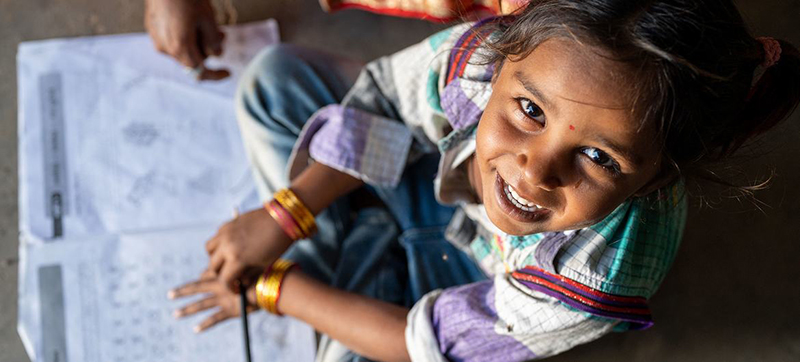 Education
Education
Poorest learners benefit the least from public education: UNICEF
Governments are not investing enough in those children who need education the most, the UN Children’s Fund (UNICEF) said in a report published on Tuesday, calling for equitable financing to combat “learning poverty”.
Children from the poorest households benefit the least from national public education funding, according to the study, which examines data from 102 countries.
Currently, the poorest 20 per cent of learners benefit from only 16 per cent of public funding for education, while the richest benefit from 28 per cent.
In low-income countries, the breakdown is 11 per cent and 42 per cent, respectively.
Failing the world’s children
“We are failing children. Too many education systems around the world are investing the least in those children who need it the most,” said UNICEF Executive Director Catherine Russell.
“Investing in the education of the poorest children is the most cost-effective way to ensure the future for children, communities and countries. True progress can only come when we invest in every child, everywhere,” she added.
The report - Transforming Education with Equitable Financing – looks at government spending from pre-primary through tertiary education.
Small investment, big return
Just a one percentage point increase in the allocation of public education resources to the poorest quintile of learners could potentially lift 35 million primary school-aged children out of what UNICEF called “learning poverty”.
Across the world, public education spending is more likely to reach learners from wealthier households, which applies in both low- and middle-income countries.
Gaps in spending
The gap is most pronounced among low-income countries, UNICEF said. Data showed that children from the richest households benefit from over six times the amount of public education funding compared to the poorest learners.
In middle-income countries, such as Côte d’Ivoire and Senegal, the richest learners received around four times more public education spending than the poorest.
Meanwhile, the spending gap is smaller in high-income countries, or up to 1.6 more between the two groups, with countries like France and Uruguay falling at the higher end of the gap.
Not grasping the basics
Children living in poverty are less likely to have access to school and drop out sooner, according to the report. They also are less represented in higher levels of education, which receive much higher public education spending per capita.
These children are also more likely to live in remote and rural areas that are generally underserved.
Even before the COVID-19 pandemic, education systems across the world were largely failing children, UNICEF said, with hundreds of millions of students attending school but not grasping basic reading and mathematics skills.
Two-thirds of all 10-year-olds globally are unable to read and understand a simple story, the UN agency added, citing recent estimates.
Fairer financing
The report called for urgent action to ensure education resources reach every learner.
It outlined four key recommendations, namely unlocking pro-equity public financing to education; prioritizing public funding to foundational learning; monitoring and ensuring equitable education aid allocation in development and humanitarian contexts and investing in innovative ways to deliver education.
Support Our Journalism
We cannot do without you.. your contribution supports unbiased journalism
IBNS is not driven by any ism- not wokeism, not racism, not skewed secularism, not hyper right-wing or left liberal ideals, nor by any hardline religious beliefs or hyper nationalism. We want to serve you good old objective news, as they are. We do not judge or preach. We let people decide for themselves. We only try to present factual and well-sourced news.







